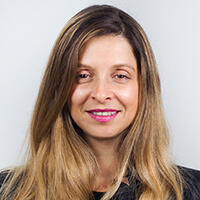The increasing interest of foreign nationals in purchasing apartments in Israel is not a new phenomenon. Over the past year, as the Gaza war was kicking into high gear, there has been steady demand for housing in the Holy Land. However, some foreign nationals have preferred to wait and monitor improvements in the security situation.
Now, a new trend seems to be emerging, indicating heightened interest from overseas in local real estate and actual transactions being carried out—evidenced by a rise in mortgage applications and preparations for mortgages by foreign residents through Israeli banks.
"In the past year, we’ve witnessed growing interest in taking out mortgages for the purchase of residential apartments in Israel, especially due to the war and the wave of antisemitism sweeping through Europe and the United States. This is reflected in laying the groundwork for real estate transactions," says Nisim Nichko, head of the Private Banking Center in Tel Aviv at Bank Jerusalem, in an interview with Ynet.
"The value of mortgages taken by foreign residents has increased by over 100%"
According to Nichko, "Foreign buyers contact us through lawyers or their representatives in Israel to open accounts for transferring equity for real estate transactions. In recent months, this has translated into actual deals—funds are being transferred, and demand for mortgages is growing. In 2025, this trend is expected to become even more significant."
Nichko describes entire communities reaching out, such as "a group of 40 community members from New Jersey who opened accounts, transferred equity, and are planning to purchase apartments in a specific area together to maintain their community ties. In the past, these were mainly investors looking for business opportunities. Today, we’re seeing households wanting to move here and live in Israel. We also note a change in the areas foreign residents are targeting. Previously, most transactions took place in Jerusalem and Tel Aviv, but now we’re seeing deals in Beit Shemesh, Givat Ze’ev, and Safed. These are religious Anglo-Saxon communities forming new neighborhoods tailored to their needs in these cities."
A comparison conducted by Bank Jerusalem between 2020 and 2024 shows that the value of mortgages taken by foreign buyers has risen by over 100%. "The average loan amount for foreign nationals has grown significantly, partly due to rising real estate prices in Israel. However, the number of applicants seeking mortgages has also increased. I believe 2025 will look different than 2024. Until now, we’ve seen foreign residents preparing the groundwork—opening accounts and transferring equity while waiting for the security situation to improve. This year, we expect to see them actually buying residential real estate and taking out mortgages accordingly."
 Nisim NichkoPhoto: Yossi Zavkar
Nisim NichkoPhoto: Yossi ZavkarHow are mortgages provided to foreign residents?
"We have two private banking centers at Bank Jerusalem—in Tel Aviv and Jerusalem—that provide comprehensive services: opening accounts in Israel, transferring funds from abroad, currency exchange, and mortgage processing. Our expertise lies in analyzing repayment capacity based on reported income in residents’ home countries. For example, a person living in Canada, the U.S., or Europe—each country has its own income reports and tax filings. Foreign buyers can receive up to 50% financing, but if they make Aliyah (immigrate to Israel), they can receive up to 75% financing for a first home. Some conduct purchases through foreign or Israeli companies as part of real estate activities, bypassing regulations applied to private buyers, and can receive financing of up to 75%. These are more complex transactions, which is our area of expertise."
Mortgage consulting firms are also noticing the increasing demand from foreign buyers. Meir Vider, CEO of Vider Mortgages, says, "In recent years, the mortgage market in Israel has garnered growing interest from foreign residents, who approach local banks to finance real estate purchases. One of the standout trends in 2024 was the significant growth in the number of mortgages granted to foreign residents—an increase of approximately 37% compared to 2023. This trend reflects a major shift in the local real estate market, with more foreigners viewing it not only as an investment opportunity but also as a safe haven during periods of global uncertainty."
According to Vider, several factors explain the growing demand for mortgages by foreign nationals. "For example, favorable interest rates. In recent years, mortgage rates in Israel were relatively low compared to other markets, especially in the post-COVID era, encouraging foreign buyers to enter the real estate market. Even when rates rose in 2024, Israel’s rates remained attractive compared to many other countries. The COVID crisis also altered foreign residents’ investment outlook. Lockdowns and economic challenges in global markets led investors to seek more stable and secure markets, and Israel is perceived as such a market."
 Meir Vider
Meir ViderAnother factor is rising housing prices. "The high real estate prices in foreign markets, especially in countries like the U.S., Canada, and the UK, have led foreign buyers to seek more affordable alternatives, and the Israeli real estate market has become particularly attractive. Many have chosen to invest in Israeli properties because of the high cost of real estate in their home countries. Additionally, despite security challenges in recent years, Israel remains a desirable destination for foreign residents due to its economic stability and strong financial market. The Israeli economy offers stable financial conditions, providing a sense of security for foreign investors."
Vider also points to legal and regulatory considerations influencing investment decisions. "Some countries limit the number of properties one can purchase and impose very high taxes. Most investments in Israel stem from the desire for property value appreciation," he says. "Israeli banks, with their strong and stable financial foundation, have focused in recent years on creating tailored financial products, allowing foreign residents to take loans on more favorable terms. Additionally, foreign buyers are sometimes required to provide extra guarantees to ensure their repayment capacity."
Get the Ynetnews app on your smartphone: Google Play: https://bit.ly/4eJ37pE | Apple App Store: https://bit.ly/3ZL7iNv
Vider predicts, "Based on current trends and the surge in mortgages granted to foreign residents in 2024, this growth is likely to continue in the coming years. Foreign buyers will continue to view the Israeli real estate market as an attractive investment opportunity, and the opportunities in this market may lead to further increases in the number of mortgages issued. The rise in the foreign nationals’ mortgage market positions Israel among the leading countries where real estate is an attraction, not just for local investors but also for international ones."
Real estate companies are also reporting increased demand from foreign buyers. For example, the Ram Adar group recently closed two deals with foreign residents who purchased two penthouse apartments in the international quarter of Lod for about $1.3 million each. These were two older couples from the U.S. planning to make Aliyah in the coming years.
 Anna FogelPhoto: Neve Aviani
Anna FogelPhoto: Neve AvianiAnna Fogel, VP of Marketing and Sales at the Ram Adar group, notes, "The international quarter, built as an independent neighborhood on the lands of Nir Zvi within Lod’s municipal area and near Be’er Ya’akov, will include a total of approximately 3,500 acres of land for 50,000 residents. Additionally, the neighborhood will feature 1.65 million square feet of employment areas, 520,000 square feet of commercial space, alongside open public spaces, public institutions, kindergartens, and an education campus."
Fogel adds, "We are constructing 400 apartments in the neighborhood as part of the 'Adar in the International Quarter' project, built in 8 buildings, each with 11 floors. Recently, the project received a construction permit for one of the plots, and the apartments are expected to be delivered in three years. One of the American couples who purchased an apartment has family living in the city of Modi’in, not far from Jerusalem, who recommended the deal and the neighborhood for its high appreciation potential. We explained to the buyers that the neighborhood is just one train stop away from Tel Aviv, a 10-minute ride."



